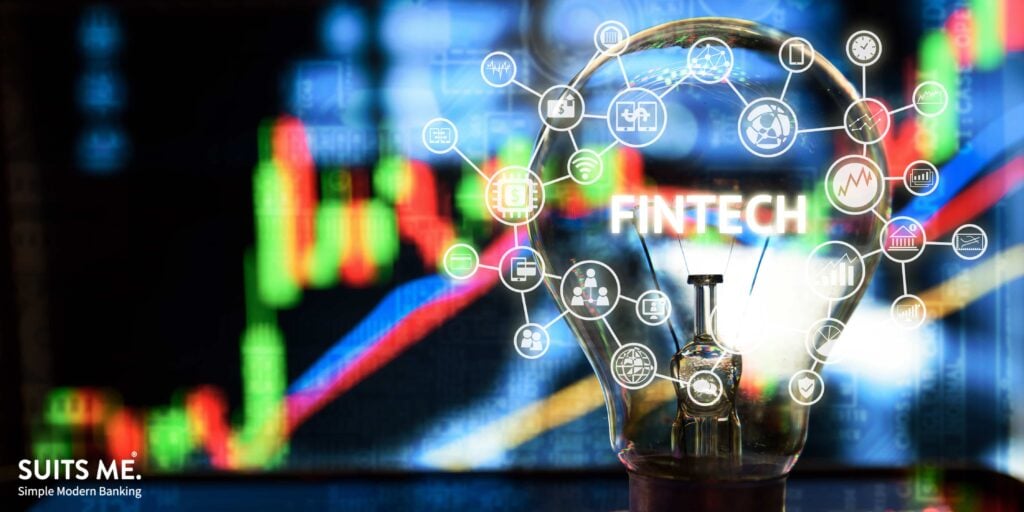suitsmecard.com/blog/what-are-the-differences-between-a-credit-card-and-a-debit-card↗

Banking terminology is not always straightforward, even if you’ve been banking for years. It can be hard to keep up with emerging fintech jargon but it’s here to stay! We’ve created a list of useful banking buzzwords which will help you prepare for the next time you encounter anything fintech related.
Fintech
Fintech is a combination of the words “financial” and “technology”. It’s used to describe the growing industry which has revolutionised the traditional banking industry by automating a lot of finances services and streamlining how users manage their finances. Fintech banking providers aim to compete with traditional banking methods to provide better financial solutions.
E-Money Account
An E-money account is an alternative to a bank account. You get all the benefits and features of a ‘traditional’ bank account plus extra benefits such as cashback rewards. To make payments and manage your money, you will need to use online banking or a mobile banking app.
E-Money accounts, don’t have a traditional banking licence but use an E-Money licence – this makes no difference to how you handle your finances, except for the fact that there’s no physical bank branch.
Challenger Banks
A challenger bank tends to be an online-only banking provider that doesn’t have a physical presence on the high street. Challenger banks are known for being innovative, providing personalised services to customers and challenge the big four banks in the UK (Barclays, Lloyds, Bank of Scotland and RBS.
Traditional Bank
A traditional bank or a “brick and mortar” bank is a bank with a physical branch on the high street. These are conventional banks that have been around for many years. There are three components of a traditional bank, which includes:
- Capital – or money, which is the foundation of a traditional bank
- Deposits – This means the payments into a bank account made by the customer
- Loans – The deposits and capital allow banks to issue loans to customers and charge interest on those payments
Digital Banking
Digital Banking is the digitalisation of traditional banking activities that a customer would previously have to manage in a bank, this includes money deposits, withdrawals, bank transfers, managing direct debits and setting up standing orders.
Cashback
There are two different types of cashback to be aware of. The first is cashback you can ask for in a shop, usually a supermarket, when you’re paying for goods.
The second version of cashback is more of a reward scheme. This involves getting a percentage of the amount it cost, paid back to you in cash. Often cashback is only offered by certain banking providers, like us here at Suits Me®, and is can be earned when you shop at specific retailers online and instore.
Digital Wallet
A digital wallet or e-wallet involves keeping your payment information (like your card details) being stored on an electronic device such as your mobile phone. Digital wallets include apps like Google Pay and Apple Pay. Some forms of digital wallets can also store other cards such as plane tickets or loyalty cards.
Open Banking
Open banking involves the practice of sharing financial information securely (only with customer approval). This is done through API’s (Application Programming Interface), which enables developers to build applications and services that allow users to share data about payments and spending habits with authorised providers like challenger banks or automated budgeting apps.
Credit Score
Your credit score is a number which reflects your reliability when it comes to paying back any credit, such as loans, overdrafts, finances agreements and credit card bills. The higher the number on your credit score, the better.
Some banking providers use your credit score to determine whether to loan you money or give you a bank account. Lenders will also check your credit score before agreeing to loan you any money.
Banking on the Future of Fintech
With these fintech terms explained, you’ll be on top of your game when it comes to banking talk. Fintech is making banking more accessible for many unbanked people within the UK, who previously would struggle to gain access to modern banking facilities. This shows that the industry is not only growing, but becoming a more diverse platform which is leading the banking revolution.





